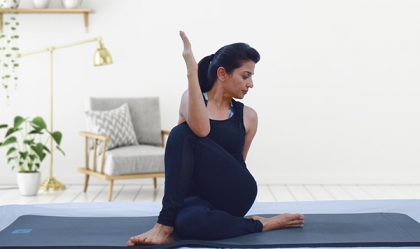Yoga offers a plethora of benefits for people of all age groups. Along with offering psychological and physiological benefits, they are particularly beneficial for people with chronic conditions. High blood pressure and thyroid can be both detrimental to one’s physical and mental health. If they are accompanied with diabetes, they can hamper the day to day functions of an individual. A person with a chronic condition needs to have strategies in place to help them combat their present condition and also prevent the risk of future complications.

Pranayama Practices to Support Thyroid and Blood Pressure Management
Here are some Yoga Asanas that can help you manage thyroid and diabetes-
Anulom Vilom (Alternate Nostril Breathing)
It brings a state of balance and cleanses the channels in your body. Anulom Vilom is believed to have a positive impact on thyroid function due to its potential to regulate the endocrine system. The practice encourages balanced energy flow throughout the body, including the throat region where the thyroid gland is located.
This pranayam also stimulates the parasympathetic nervous system, inducing a relaxation response that counteracts the effects of stress hormones. Over time, this can contribute to blood pressure management and improve your cardiovascular health.
Surya Bhedan Pranayam (Right Nostril Breathing)
It increases your energy and stimulates the digestive fire in your body. Surya Bhedan Pranayama is thought to stimulate the thyroid gland indirectly through its influence on the sympathetic nervous system.
While Surya Bhedan Pranayama is generally considered energising, its impact on blood pressure may vary among individuals. However, it has had a positive impact on people who are dealing with high blood pressure.
Pranayam can offer a holistic approach in managing a person’s thyroid function and high blood pressure. If you include yoga in your health management routine, you will be able to harness the power of breath and take active steps towards improving your overall health.
However, if you have any doubts about changing your healthcare routine or trying out a new form of exercise, you should always speak to your doctor or health coach first.
Get the best health advice with BeatO.




